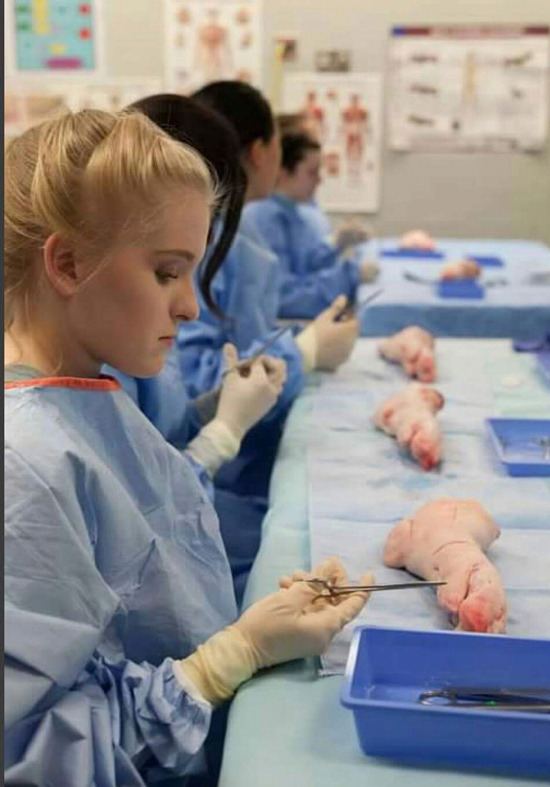Maddie Lea was supposed to have decades before she needed a kidney transplant, if she needed one at all.
But now her failing kidneys are posing a risk to both the Bonney Lake High School senior’s health and the opportunity to attend her dream college, Pacific Lutheran University, in the fall.
Lea has Alport syndrome, a rare genetic disorder that causes cysts to grow on her kidneys and slowly shuts them down.
Her family was on the lookout for the disease because her father also has it, and has since gone through two kidney transplants; he received one from his mother and another from his wife Kim.
Due to the fact that men are typically more severely affected by the disorder than females and the late onset in which Lea’s father needed a transplant, the family was caught off-guard when Lea’s creatine levels shot up last May.
“It’s been scary, and unexpected,” Lea said. “It was hard to take in. I’m supposed to be starting college in the fall, and I just got accepted into my dream college and everything was so exciting…. It is really heartbreaking.”
Lea’s kept mostly quiet about her situation around school and her friends, but has received support from her closest friends and her high school guidance counselors, who started a GoFundMe page for the family.
Her brother offered to donate his kidney, but because he is 14, is unable to do so.
Since the initial flare-up of creatine, Lea’s been placed on the living donors list and is looking to get a kidney before she has to go on dialysis. The three to four hours it would take for treatment, three days a week, and the resulting exhaustion is what would ultimately keep her from attending PLU.
Lea is enrolled in the college’s pre-med program and hopes to one day by a pediatric nephrologist – a children’s kidney doctor – in part because of her volunteer work in the pediatric unit at a local hospital, but also because of the rarity of both her and her father’s disorder.
Failing kidneys, loss of hearing and vision abnormalities
Only around one person in 50,000 are born with Alport syndrome, according to the U.S. National Library of Medicine.
While kidney failure is one of the more severe symptoms of Alport syndrome, some people who have the disorder also develop hearing loss or vision complications, often depending on their sex and the genetic type of the disorder.
Males are more likely to develop progressive kidney disease, hearing loss and eye abnormalities than females.
There are three different genetic types of Alport syndrome: X-linked Alport syndrome (XLAS), autosomal recessive Alport syndrome (ADAS) and autosomal dominant Alport syndrome (ADAS).
Lea’s Alport syndrome is the XLAS genetic type, because she inherited the disorder from her father and not her mother. Approximately 80 percent of Alport syndrome cases are categorized as XLAS, while 15 percent is ARAS and 5 percent ADAS.
According to the National Organization for Rare Disorders, men with XLAS typically begin to develop kidney failure by 25 years of age, and most by age 40, while women do not typically develop kidney failure until later in life, if they do at all.
Both men and women with ARAS often develop kidney failure in their teen years, or early 20s.
Men and women with ADAS will both typically develop kidney failure, but not until they’re older.
All forms of Alport syndrome can also cause progressive hearing loss. Hearing loss associated with XLAS in males can happen as early as the teenage years, losing half of their hearing by age 15.
Women with XLAS tend to develop hearing loss later in life.
Men and women with ARAS tend to develop hearing loss much earlier on than with XLAS, and those with ADAS typically develop hearing loss later in life than with XLAS.
Alport syndrome doesn’t normally cause vision loss, but the disorder can abnormally change the shape of the eye’s lenses, known as anterior lenticonus, that could require glasses.
The cornea can also be affected by the disorder, which can cause pain from anywhere between irritating to severe, as well as a sensitivity to light, blurred vision and a constant sensation that something is in the eye.
Eye abnormalities in XLAS and ARAS are similar and uncommon in ADAS.
Looking for a kidney
Due to the multiple medical appointments Lea and her mother have attended, and because her father has the same disorder and her mother works in the medical field, both are becoming experts on the kidney.
A kidney transplant isn’t just about finding someone with the same blood type (Lea and her parents are all B+), but someone who also has compatible antibodies.
“They would draw blood – they have her blood already, and they would draw blood from a donor and then they would basically mix the blood and see if the antibodies would fight each other,” Kim explained.
Lea said her blood type is compatible with both types of O blood, as well as both types of B.
Contacting the Living Donor program at the University of Washington is the quickest way to get screened for a potential donation.
To specifically donate to Lea, use her full name – Madison Olivia Lea – in the online questionnaire, or call the Living Donor program at 206-598-3627 and mention Lea by name.


